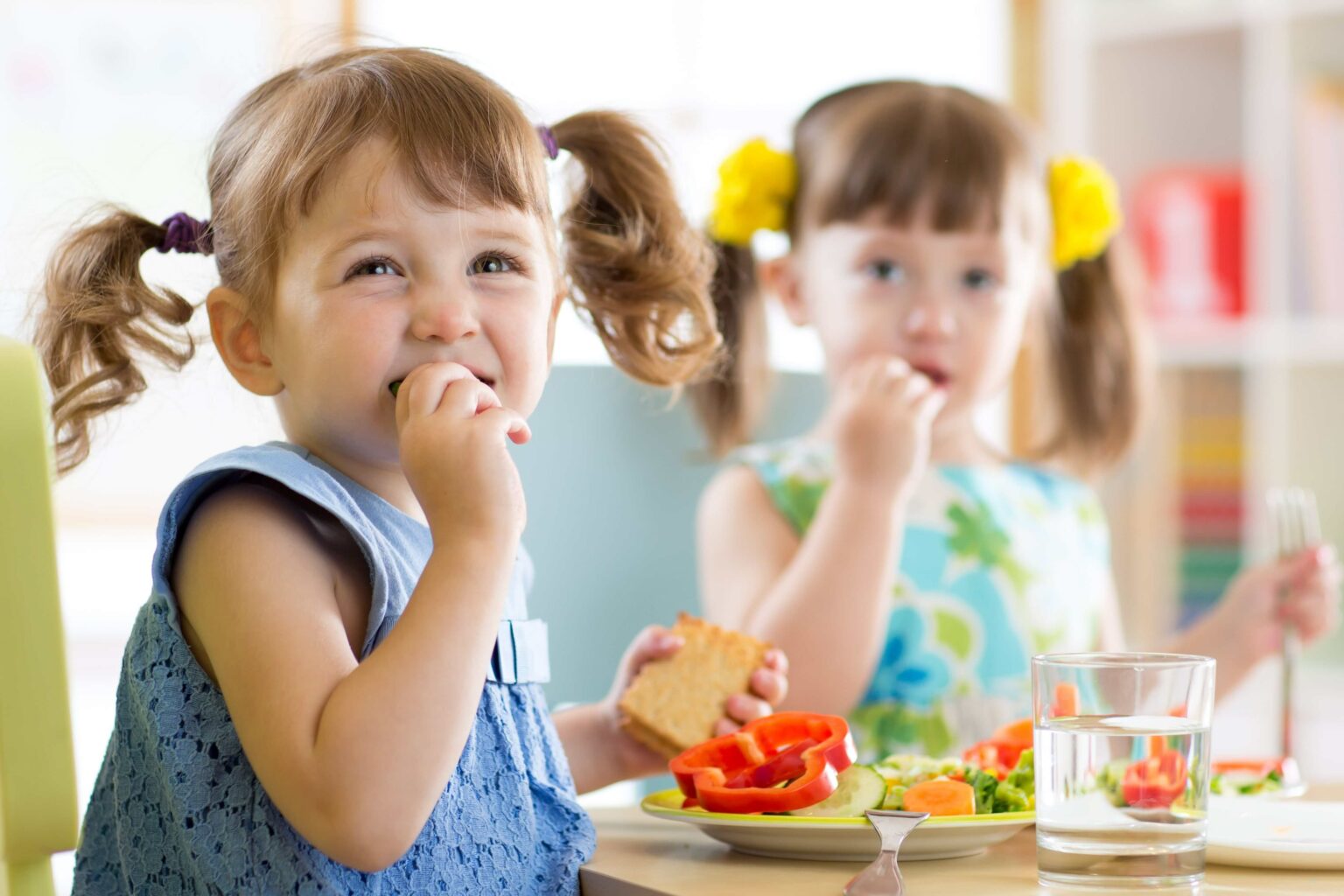Should Preschools Have Snacks for Kids?

Are snacks needed in preschool? Nay-sayers are concerned with extra calories, the quality of food offered, and the effect of frequent eating on how well children regulate their appetite. But is it really negative for preschools to have snacks for kids?
Pros of preschool snacks
Snacks at preschool have the potential to add nutrition by offering nutrients that young children may need and not receive (or get enough of) at other times during the day.
Snacks may prevent excessive hunger. Hungry youngsters may have a hard time focusing during learning time. They may also experience behavior changes such as increased crankiness or tiredness.
Snack time is an opportunity for youngsters to socialize differently than during imaginary play. Sitting still in a chair, talking, and eating — all at the same time — is a different way of interacting (and a challenging one at that).
Last, preschool protein snacks for kids served at a table allow youngsters to navigate serving themselves food and drinks. Pouring their own beverages, choosing a snack, and placing it on a plate are important skills to learn. Sometimes, young children get more opportunities at preschool to do this than at their homes.
Cons of preschool snacks
Preschool food options may not be the healthiest for growing children, especially if they showcase highly processed foods and sweets, such as cheesy crackers and cookies.
Repetitive offerings can also get in the way of health. Serving up the same crackers day in and day out does little to optimize nutrition for preschoolers.
Not all children are hungry for a snack. Depending on the schedule, some children may have just eaten a meal before school starts and won’t need a snack for a couple of hours. Eating when not hungry may disrupt a young child’s ability to regulate his or her appetite and teach him or her to eat because it is time to eat, rather than to eat when hungry.
Furthermore, the time children spend in school is short. Snacks may disrupt the opportunity for learning.
Of course, every child is different, and every preschool situation is unique. This makes it hard to know for sure whether snacks at preschools are good or bad.
How to keep the preschool snack environment healthy
If snacks are offered, you can provide more wholesome foods, like fresh or dried fruit, fresh vegetables (with or without dip), dairy products (such as cheese or yogurt sticks), whole grain options (such as crackers and pretzels), and protein options such as edamame or nut butter (use sunflower butter if there are food allergies).
Rotate the food offerings each day so that children are exposed to many different foods and nutrients.
Consider making snack time optional, while encouraging children to “listen to their tummies.” Let children decide if they are hungry for a snack or if they’d rather do another activity.










